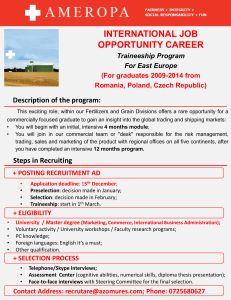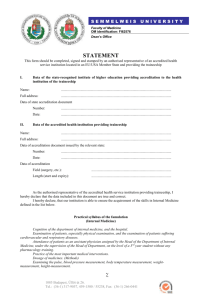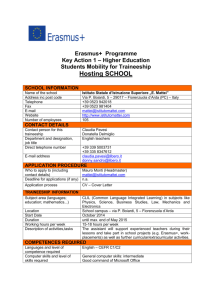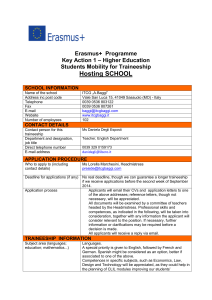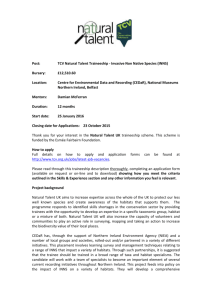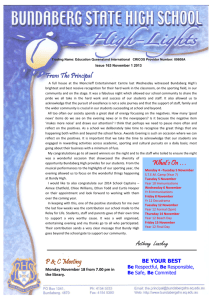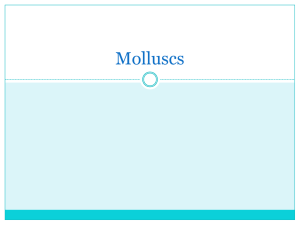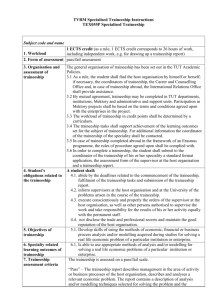Post: TCV Natural Talent Traineeship - Non
advertisement
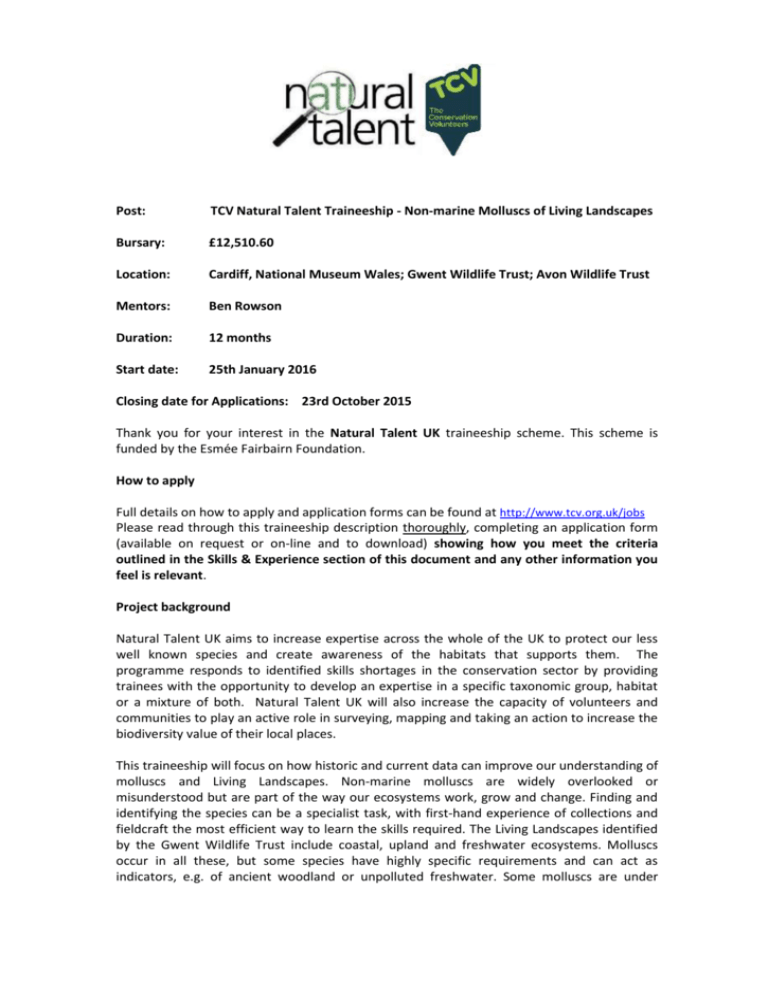
Post: TCV Natural Talent Traineeship - Non-marine Molluscs of Living Landscapes Bursary: £12,510.60 Location: Cardiff, National Museum Wales; Gwent Wildlife Trust; Avon Wildlife Trust Mentors: Ben Rowson Duration: 12 months Start date: 25th January 2016 Closing date for Applications: 23rd October 2015 Thank you for your interest in the Natural Talent UK traineeship scheme. This scheme is funded by the Esmée Fairbairn Foundation. How to apply Full details on how to apply and application forms can be found at http://www.tcv.org.uk/jobs Please read through this traineeship description thoroughly, completing an application form (available on request or on-line and to download) showing how you meet the criteria outlined in the Skills & Experience section of this document and any other information you feel is relevant. Project background Natural Talent UK aims to increase expertise across the whole of the UK to protect our less well known species and create awareness of the habitats that supports them. The programme responds to identified skills shortages in the conservation sector by providing trainees with the opportunity to develop an expertise in a specific taxonomic group, habitat or a mixture of both. Natural Talent UK will also increase the capacity of volunteers and communities to play an active role in surveying, mapping and taking an action to increase the biodiversity value of their local places. This traineeship will focus on how historic and current data can improve our understanding of molluscs and Living Landscapes. Non-marine molluscs are widely overlooked or misunderstood but are part of the way our ecosystems work, grow and change. Finding and identifying the species can be a specialist task, with first-hand experience of collections and fieldcraft the most efficient way to learn the skills required. The Living Landscapes identified by the Gwent Wildlife Trust include coastal, upland and freshwater ecosystems. Molluscs occur in all these, but some species have highly specific requirements and can act as indicators, e.g. of ancient woodland or unpolluted freshwater. Some molluscs are under threat while others are themselves a nuisance, raising complex issues about their roles in protected areas. In many cases their status is still a mystery. The trainee will be based in the Department of Natural Sciences, National Museum Cardiff with outdoor work in several locations in Gwent, and on the Somerset Levels in Avon. The Museum's mollusc collections are of international importance and allow considerable opportunities for study and training. The trainee will use them as the basis for development of research mini-projects in each of Gwent Wildlife Trust's three Living Landscape areas. They will be given opportunity to undertake short visits to the Trust, to other UK Museums, and the local Biological Records Centre. They will also be encouraged to participate in a program of public events across sites, with Museum and Trust colleagues and an OPAL (Open Air Laboratories) Community Scientist. Training During the traineeship, you will learn and apply the following skills; Identification and fieldcraft of terrestrial and freshwater molluscs Use of identification manuals, keys and microscopes Sample sorting & microscopy work Museum standard specimen preservation & curation techniques Managing data and record databases, verifying and submitting records and project design Extraction and interpretation of historical and archaeological mollusc records Taxonomy, systematics and the malacological literature Data analysis, report writing and IT skills Community engagement techniques Delivering Citizen Science in communities Habitat management and the Living Landscapes approach Person specification Qualifications: No formal qualifications necessary although candidates A passion and enthusiasm for invertebrate will have to demonstrate knowledge of some aspect of biology and protecting and conserving our the natural environment and their enthusiasm for the natural environment traineeship Experience: General field surveying techniques Some experience of working in practical conservation, particularly woodland or wetland environments Applicants will have some knowledge, background and understanding of invertebrates to deliver this traineeship to a high standard Skills : The ability to work as part of a team player or Applicants must have a good working knowledge of as an individual, depending on the type of basic IT software packages (e.g. MS Office). work carried out throughout the traineeship Applicants must have excellent communication and interpersonal skills Ability to find small species in large habitats Be comfortable with the use of identification keys, using microscopes and identifying specimens; careful Confidence in enthusing, encouraging and handling of delicate collections supporting communities to take part in Applicants must be able to articulate scientific education and Citizen Science activities terminology in a way that can be easily understood by a number of stakeholders Personal Qualities: Applicants will have to demonstrate that they have the dedication and commitment to work on their own initiative to find external collaborators, network with other experts and complete the traineeship to a high standard. Candidates must be comfortable with the collection and preservation of live mollusc specimens A curiosity about the reasons underlying diversity and patterns in nature Other: Although some natural history knowledge is preferable, Some experience of engaging others with motivation, enthusiasm, excellent communication skills nature and experience of participating in and drive are the most important qualities in a Citizen science activities potential applicant. A full, clean driving license
